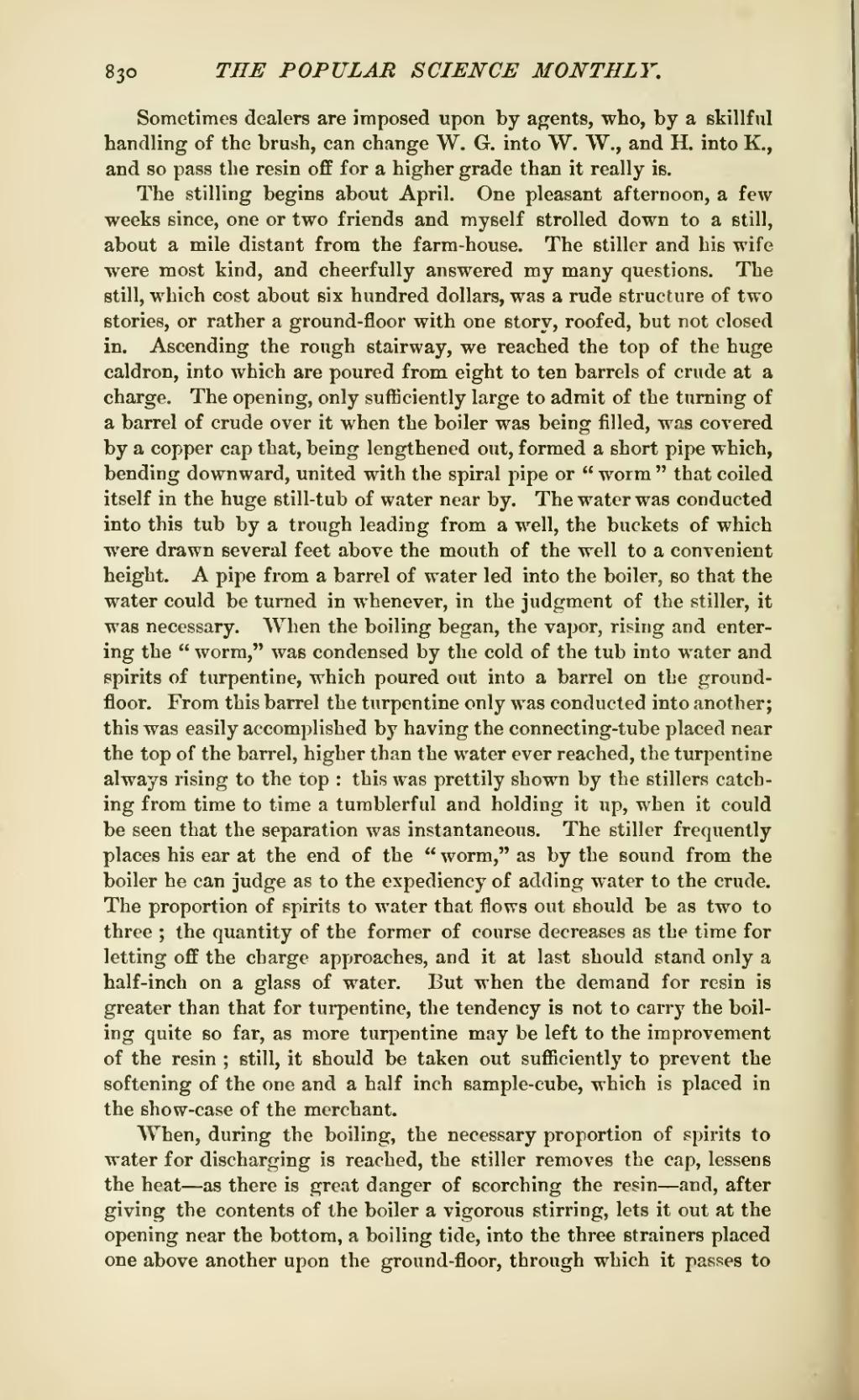Sometimes dealers are imposed upon by agents, who, by a skillful handling of the brush, can change W. G. into W. W., and H. into K., and so pass the resin off for a higher grade than it really is.
The stilling begins about April. One pleasant afternoon, a few weeks since, one or two friends and myself strolled down to a still, about a mile distant from the farm-house. The stiller and his wife were most kind, and cheerfully answered my many questions. The still, which cost about six hundred dollars, was a rude structure of two stories, or rather a ground-floor with one story, roofed, but not closed in. Ascending the rough stairway, we reached the top of the huge caldron, into which are poured from eight to ten barrels of crude at a charge. The opening, only sufficiently large to admit of the turning of a barrel of crude over it when the boiler was being filled, was covered by a copper cap that, being lengthened out, formed a short pipe which, bending downward, united with the spiral pipe or "worm" that coiled itself in the huge still-tub of water near by. The water was conducted into this tub by a trough leading from a well, the buckets of which were drawn several feet above the mouth of the well to a convenient height. A pipe from a barrel of water led into the boiler, so that the water could be turned in whenever, in the judgment of the stiller, it was necessary. When the boiling began, the vapor, rising and entering the "worm," was condensed by the cold of the tub into water and spirits of turpentine, which poured out into a barrel on the groundfloor. From this barrel the turpentine only was conducted into another; this was easily accomplished by having the connecting-tube placed near the top of the barrel, higher than the water ever reached, the turpentine always rising to the top: this was prettily shown by the stillers catching from time to time a tumblerful and holding it up, when it could be seen that the separation was instantaneous. The stiller frequently places his ear at the end of the "worm," as by the sound from the boiler he can judge as to the expediency of adding water to the crude. The proportion of spirits to water that flows out should be as two to three; the quantity of the former of course decreases as the time for letting off the charge approaches, and it at last should stand only a half-inch on a glass of water. But when the demand for resin is greater than that for turpentine, the tendency is not to carry the boiling quite so far, as more turpentine may be left to the improvement of the resin; still, it should be taken out sufficiently to prevent the softening of the one and a half inch sample-cube, which is placed in the show-case of the merchant.
When, during the boiling, the necessary proportion of spirits to water for discharging is reached, the stiller removes the cap, lessens the heat—as there is great danger of scorching the resin—and, after giving the contents of the boiler a vigorous stirring, lets it out at the opening near the bottom, a boiling tide, into the three strainers placed one above another upon the ground-floor, through which it passes to

